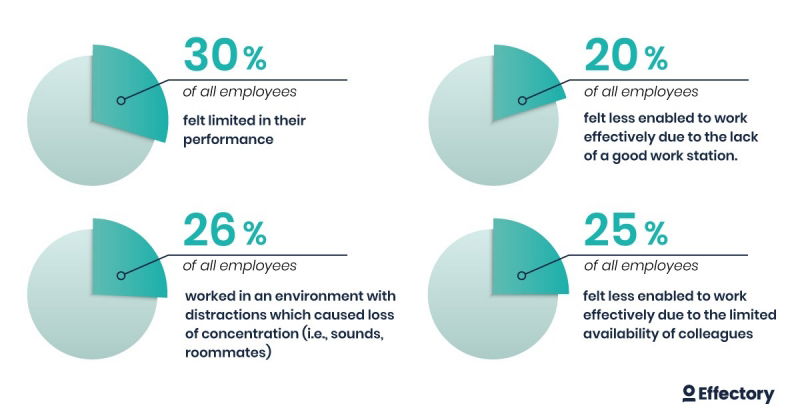share on
HR managers take note. Organisations that can maintain good crisis communication have emerged as significantly better off than those that do not.
In a study of over 123,000 participants it was revealed that employees who are satisfied with the way in which their company is dealing with the ongoing Covid-19 pandemic perform 28% better.
Additionally, the first wave of coronavirus cases, 60% of employees experienced a poor work-life balance, as they sought to adapt to working from home, according to the survey by Amsterdam-headquartered employee engagement specialist, Effectory.
Positive impact of good crisis communication
Employees who are satisfied with the way in which their organisation communicate and manage the crisis not only perform better, they also feel more assured about the organisation’s future.

“If an organisation shows strong leadership in times of crisis, it can help to develop a sense of solidarity. Employees then think: ‘We are going to overcome this situation.’ That motivates them to be committed and to perform well,” said Merel Van der Lei, CPO and innovation manager at Effectory.
Balance affected most at the start of pandemic but employees adjusted
The survey also revealed 60% of employees were unable to maintain a good work-life balance during the first wave of Covid-19. This figure subsequently dropped to around 40% of employees as they adapted to the new normal.
Risk of burnout
There was also a corollary between burnout and work-from-home adjustments in the early months of the pandemic as many employees did not yet have the tools and know-how to tackle working remotely.
“During the first wave of coronavirus cases, employees had fewer energy resources. For example, some employees did not have the right tools to perform their jobs properly. Collaborating with colleagues was, in many cases, more difficult. And many employees found that their living situations made it difficult to concentrate,” said Van der Lei.

Crisis communication needs critical indicators
Pulse surveys (quick survey sent out on a regular basis) are an effective method for employers to gain insight into a number of critical indicators about their staff – especially important if they are working from home.
Van der Lei explained that employees can be given the same seven key questions. Three about their well-being: Do they have a good work-life balance? Is their workload too high, too low or just right? Can they maintain their current situation in the long term?
“This last question predicts the likelihood of burnout. Carrying out pulse surveys regularly can also help organisations detect trends,” she added.
share on


